Reviews
Werner Herzog
USA, 2009
Credits
Review by Mike D’Angelo
Posted on 19 September 2009
Source VVS Films 35mm print
Categories The 2009 Toronto International Film Festival
Sight unseen, it was tough to guess which of Werner Herzog’s two new movies, arriving in Toronto after their dual premiere at Venice, would be the more bizarre. One of them, of course, was a quasi-remake of Abel Ferrara’s Bad Lieutenant, and that turned out to be every bit as nutzoid as its trailer suggested; critical response was generally positive, though opinions differ regarding what percentage of its comedy was intentional. To say that Herzog’s other effort has been less warmly received, however, would be an understatement. The very same people who were tickled by Bad Lieutenant’s ludicrous Iguanacam and manic Nicolas Cage performance have dismissed the more somber My Son, My Son, What Have Ye Done as a tedious compendium of mannered eccentricity, with many comparing it unfavorably to the work of one of its producers, David Lynch. Which only goes to show how utterly tone-deaf even the most perceptive film critics can sometimes be.
Granted, on the surface, this is one nutty motion picture. Reportedly based on a true story (though I’ve been unable to dig up any details), it opens with the murder of a middle-aged woman by her adult son, Brad, a stage actor who’s clearly suffering from some form of mental illness. After cheerfully greeting the lead detective from among a gaggle of onlookers (“Why didn’t you arrest him?” asks a colleague; “Should I have?” is the straight-faced reply), Brad barricades himself in his house (across the street from the crime scene), claiming he’s taken two hostages. While awaiting further developments, the detective questions Brad’s sweetly puzzled fiancée and the director of the play that all three had been rehearsing (which happens to be Aeschylus’ The Furies, with Brad as the matricidal Orestes); their answers trigger flashbacks depicting the sequence of increasingly odd events leading up to the crime, as Brad’s already unstable psyche gradually deteriorates.
Here’s how to dismiss this challenging movie in three easy (and lazy) steps. (1) Notice David Lynch’s name in the opening credits. (2) Observe that the film features various elements that could qualify as Lynchian: a dwarf, a couple of pet flamingos, an ostrich farm, a remark about coffee that exceeds four words. (3) Conclude that Herzog has served up little more than a soggy Lynch pastiche. This last step will be tricky, mind you, as it requires completely overlooking the film’s measured, compassionate tone, which couldn’t possibly be further from the menacing trance state that Lynch favors. You can do it, though. Just focus on a few surface affectations and ignore everything else. So long as you don’t address the performances, the numerous moments of tranquil beauty, the blatantly life-and art-affirming final shot, or the simple fact that Herzog does almost everything imaginable to downplay and undermine the story’s surface weirdness, you should be fine.
Come on now, people. Herzog doesn’t do surrealistic nightmares. If there’s a madman in a Herzog picture, you can feel confident that the director empathizes with him, and My Son, My Son treats Brad with such deep and abiding respect that he effectively becomes the movie’s hero despite never coming across as anything but a wack job. Michael Shannon plays the character with surprising restraint, given his onscreen persona—his characters in Bug, Revolutionary Road and even World Trade Center all seem more unhinged than Brad. Meanwhile, Willem Dafoe (as the detective), Chloë Sevigny (as the fiancée) and freakin’ Udo Kier (as the theater director) seem to be vying for the title of Least Demonstrative, turning in performances so resolutely normal that people are mistaking them for weirdo-stilted. (That said, Herzog erred grievously in casting Lynch regular Grace Zabriskie as Brad’s mom, since weirdo-stilted is literally all she can do.)
All in all, the differences between Lynch and Herzog are so obvious and unmistakable that spelling them out makes me feel as if I’m talking to very slow children. Lynch believes in Good and Evil, and makes films that map their occasional world-disrupting intersections. Herzog believes in unpitying nature, and accepts everything he encounters (with the possible exception of ATM machines in Antarctica) as further evidence of life’s glorious mystery. With My Son, My Son, he’s made a film that seeks to find the ineffable in a bizarre real-life tragedy. Even the detective seems far more interested in trying to understand Brad than in capturing him, and Herzog scatters tiny grace notes of beauty and kindness throughout the film, from a cop distributing bottled water to his exhausted colleagues to Brad summoning his fiancée to Tijuana merely in order to show her an impromptu sculpture he’s fashioned from a single bare lightbulb and five pairs of prescription eyeglasses.
As for all the allegedly bizarro stuff, it’s been exaggerated to an almost hilarious degree. Yes, a dwarf makes a (very brief) appearance—but where Lynch uses physical oddity to suggest a parallel dreamworld, Herzog is just making an absurdist joke about a giant chicken named Willard, which was allegedly taller than said dwarf astride an ostrich. It’s a goofy aside, not a mesmerizing setpiece. The pet flamingos have an actual narrative function, and the detective’s quick apology to his witnesses for not offering coffee sooner is just another instance of casual consideration, bearing no resemblance to Agent Cooper’s over-the-top praise in Twin Peaks. One critic even cited the line “Mom, this jello looks hideous” as evidence of insanity; all I can say is that the jello does, in fact, look hideous. I make no great claims for this film, which never even approaches the grandiose heights of old-school Herzog masterpieces like Aguirre, the Wrath of God and Fitzcarraldo. But it does work beautifully as a lyrical flipside to The Bad Lieutenant, finding grace in madness.
More The 2009 Toronto International Film Festival
-

Huacho
2009 -

A Serious Man
2009 -

Hadewijch
2009 -
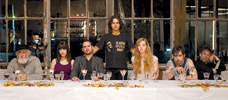
Soul Kitchen
2009 -

The Bad Lieutenant: Port of Call New Orleans
2009 -
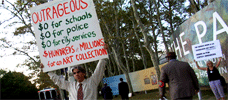
The Art of the Steal
2009 -

The Ape
2009 -

Trash Humpers
2009 -

My Son, My Son, What Have Ye Done
2009 -
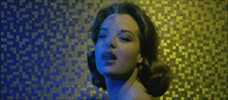
L’Enfer de Henri-Georges Clouzot
2009 -
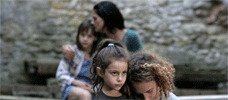
Father of My Children
2009 -
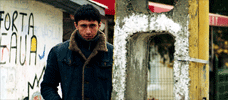
Police, Adjective
2009 -

Lebanon
2009 -
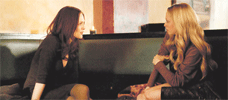
Chloe
2009 -

The Disappearance of Alice Creed
2009 -

Lourdes
2009 -

Ondine
2009 -
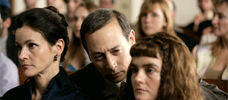
Life During Wartime
2009
We don’t do comments anymore, but you may contact us here or find us on Twitter or Facebook.



